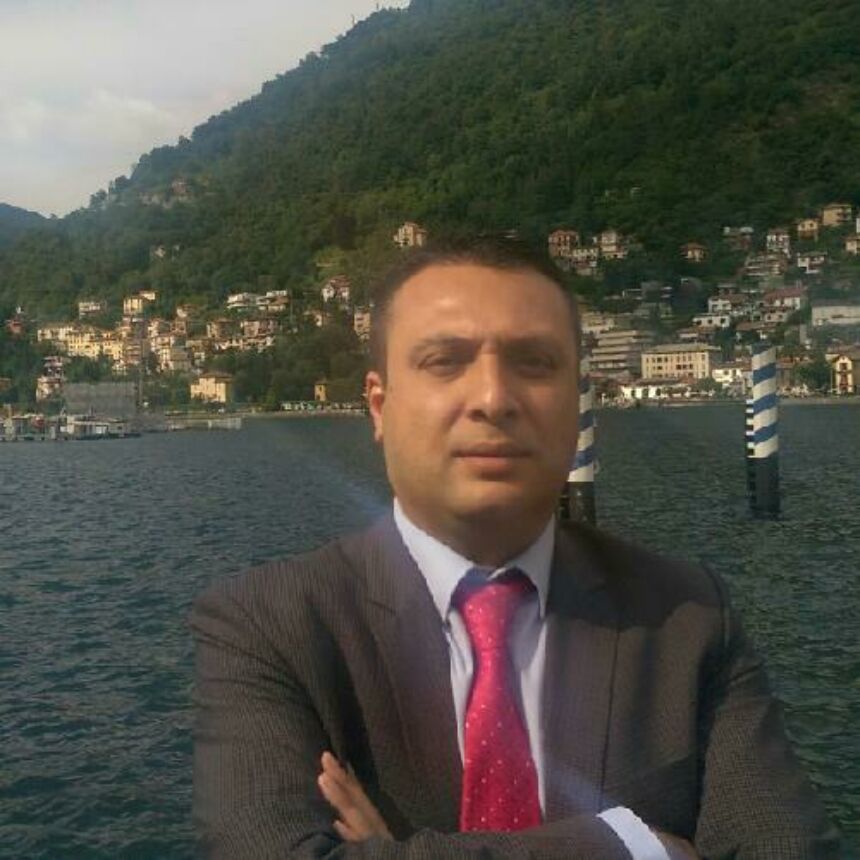December 16, 2015
SIA alumnus driving regional trade through the Middle East

Mehmet Uylukcu ’12 SIA admits that trying to connect the entire Middle Eastern and north African region by road is not an easy task.
“Trade seeks a stable area,” said Uylukcu, who works as a manager for the International Road Transport Union (IRU) in a region known for its rising tensions and volatility. But what better place than in Istanbul—a city that’s history has linked ancient cultures, religions, and economies for thousands of years—to try.
Today, Istanbul is Uylukcu’s home base at the IRU, a nonprofit organization that was formed one year after the United Nations Economic Comission for Europe, in 1948 and acts as the global voice of the road transport industry. But Uylukcu’s responsibilities also have him doing work in Saudi Arabia, Jordan, Oman, and the United Arab Emirates, depending on the day.
The IRU works on behalf of its national member associations and associate members toward facilitating road transport across country borders worldwide, as well as developing industry-wide road safety and transportation standards. These members represent bus, coach, taxi, and truck operators, from large fleets to individual owner-operators, across 74 countries on five continents.
Uylukcu’s work within the IRU focuses specifically on establishing professionalism on transport market through accredited training institutions throughout his assigned region. Just recently, he has been working on setting up a model training and examining portal in Jordan that certifies drivers and managers in professional driving, road safety, crash prevention and the transportation of potentially dangerous goods such as oil and natural gas based on international standards. Certifications from these institutes, Uylukcu hopes, will not only promote safety, but also generate trade and prosperity as certificate-carrying transporters will be able to move through member countries’ borders and customs more effectively.
With almost 14 years of experience in the international trade industry, if Uylukcu says something generates trade, it’s probably a safe bet. Before going to the IRU, Uylukcu spent over a decade as a customs and trade expert at the Republic of Turkey’s ministry. He left the ministry to come to Penn State, in search of a diversified program in international affairs, which Uylukcu gleefully declares to have received at the School of International Affairs.
“I learned so much and it gave me such a strong background in international affairs,” said Uylukcu, who also credits SIA for strengthening his English and writing skills. “Professor [Johannes]Fedderke is really a genius, and I still fondly remember much of what I was taught in Professor [Richard Butler’s Maintenance of International Peace and Security]class. Beside, I gained a precious background how domestic politics affect international relations from Professor Jett”
Although Uylukcu returned to the Turkish ministry following graduation, the diverse education he received in international affairs at SIA led him to realize that he wanted to work on the policymaking side of international trade at the IRU, as opposed to the practitioner’s side at the ministry.
“Fourteen years working with practitioners is enough for now,” said Uylukcu. “I want to try sitting at the other side of the table for a while and focusing on the global perspective of policy and trade.”
Now, Uylukcu is taking the practitioners’ knowledge he has of the industry, economics, customs, and trade, and using it to influence the laws and regulations for the IRU so that passengers travel safer and goods get to foreign destinations more efficiently. And he is doing it all within a region where few strong and lasting linkages of any kind exist.
Uylukcu hopes his efforts to generate progress on the trade front through road transport will lead to prosperity and, ultimately, sustained peace.
